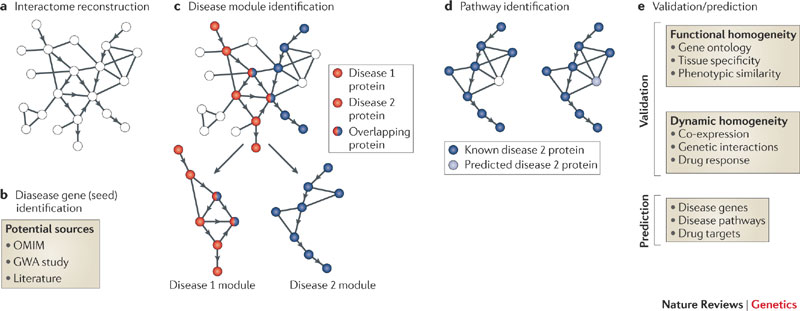
Genes do not operate alone within the cell, but in an intricate network of interactions that we have only recently started to envisage.
Many higher-order levels of interaction are continuously being discovered and even complex traits, including diseases, are starting to be considered from a systems biology perspective. In this scenario, a clear necessity exists for methods and tools which can help to understand large-scale experiments (microarrays, proteomics, etc.) and to formulate genome-scale hypothesis (evolution, gene interaction, etc.) from a systems biology perspective. Dealing with genome-scale data in this context requires of its functional profiling, but this step must be taken within a systems biology framework, in which the network of gene product interactions is considered.
Platforms and networks
INB: The Spanish National Institute of Bioinformatics
CIBERER. The Spanish network for research in rare diseases
RTICC: The Spanish Network for Cancer Research
MLPM - Machine Learning for Personalized Medicine. Marie Curie ITN.
SEQAHEAD: COST Action BM1006: Next Generation Sequencing Data Analysis Network.
Ongoing projects
FutureClinic. Towards the real personalized medicine. Preparing the scenario for the introduction of genomics data in the clinic.
Medical Genome Project. Finding disease genes using Next Generation Sequencing
CITRUSGENN: A project for sequencing, genotyping and development of tools for genetic improvement of citrics.
Completed projects
Cetegen. New therapeutic approaches to Myotonic Dystrophy: Functional Genomics and in vivo drug discovery studies
DEMETER Scientific-technic knowledge generation in wine-producing sector to face the new challeges in climate change impact.
Quotations
Tha last babelomics paper has been chosen featured paper by the NAR editors. Featured Articles highlight the best papers published in NAR. These articles are chosen by the Executive Editors on the recommendation of Editorial Board Members and Referees. They represent the top 5% of papers in terms of originality, significance and scientific excellence.
Our popular FatiGO tool has been cited in ScienceWATCH. (Feb 2010)
